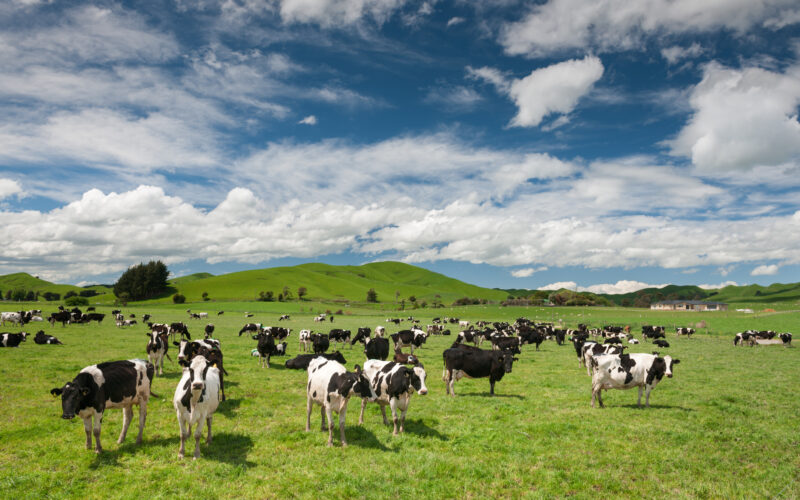Last week’s announcement of the proposal to tax farmers on their emissions came like the classic bolt from the blue. I wasn’t expecting it this close to the election.
It doesn’t reflect well on the rural community’s place in the New Zealand economy.
To start with a brief history lesson: He Waka Eke Noa (HWEN) was floated as a collaboration between farmers and the government to try to establish a payment system for the greenhouse gases methane and nitrous oxide.
The subsequent discussion bears witness to the dysfunctionality of our sector as Beef + Lamb NZ (BLNZ) and Dairy NZ did what they could to sideline Federated Farmers and pursue their own agendas. They were, in my view, outclassed by the Wellington bureaucracy.
The good news is that the failings of the levy organisations encouraged the formation of Groundswell, which has had a major effect on farmer politics and for the better.
Groundswell has been responsible for positive change, certainly with BLNZ.
We now have a new HWEN alternative that, while still a tax on production, is a lot better than previous alternatives.
We will have a split gas approach, the dates have been pushed out, the price will be set at the lowest possible level, sequestration will be accepted and further consultation is sought.
The National Party response, surprisingly in my view, was to suggest another bureaucracy while pushing the start date out further than the government’s.
Federated Farmers was first out of the blocks, saying it was concerned the new HWEN would put farmers out of business as there would be a 20% reduction in sheep and beef farming and 5% in dairy.
President Wayne Langford told us that the “announcement is completely tone deaf to the reality rural New Zealanders are living with”.
Langford went on to outline the Feds bottom line. It wants a review of the methane targets, viable and cost-effective mitigation tools for farmers and a pricing system that won’t lead to emissions leakage to less-efficient countries.
I agree.
For the record I don’t agree with any taxing of production. I don’t accept the current methane warming formula, I remain unconvinced by much of the science, and the Paris Accord totally exempts food production.
In addition, as BLNZ chair Kate Acland pointed out, farmers “have been reducing emissions annually by 1% for the past 30 years”.
But the issue isn’t what I think, it is the perception of the NZ public – and that’s where we have a problem.
It seems to me that the government thinks there are more votes in taxing farmers for their GHGs than not. Labour is currently losing ground to the Greens and they think that taxing farmers will help reverse their fortunes.
Sadly, I think they’re right and, as I said, it’s largely our fault.
A good example was the three part “investigation” by state radio RNZ, entitled Cows vs Crown. The little darlings at RNZ told us “how agriculture killed a climate tax – again”. They concluded with the headline What Killed the Plan to Price Agricultural Emissions.
They got it wrong in several key areas. The most glaringly was that agriculture hadn’t killed anything. The plan to tax agricultural emissions was announced while the RNZ programme was running, which showed how out of touch RNZ was.
They certainly gave me the sincere impression of being anti farmer and blissfully ignorant of the harsh realities of farming today.
That was compounded by their statements after the HWEN release when they proudly stated that “new targets will force farmers to reduce their emissions in order to sell to export markets”.
As I’ve previously written, I remain totally unconvinced that reducing emissions will give us entrances into any new markets or save us being excluded from those we currently service.
That was compounded by the mainstream media basically ignoring the entire debate except for the odd short headline, and there’s the problem.
My position, as I’ve stated, is that the government believes there are more votes from taxing farmers’ emissions than the votes that will be lost by taxing those emissions.
If a government, any government, feels that their votes will increase by legislating against agriculture we need to get our act together, combat the perception and do it now.
I have considerable respect for Federated Farmers, as to stay in business it needs to accurately reflect its members’ views.
I have considerably less for the levy organisations, although the jury is out on BLNZ. I remain unconvinced it has the grunt to counter the Wellington bureaucracy.
What needs to happen and now is for the sector to have a strong, single voice. If the government believes there are more votes regulating farmers than will be lost from farmers then we have a major image problem.
The solution is in our own hands, but we don’t have time to waste.










